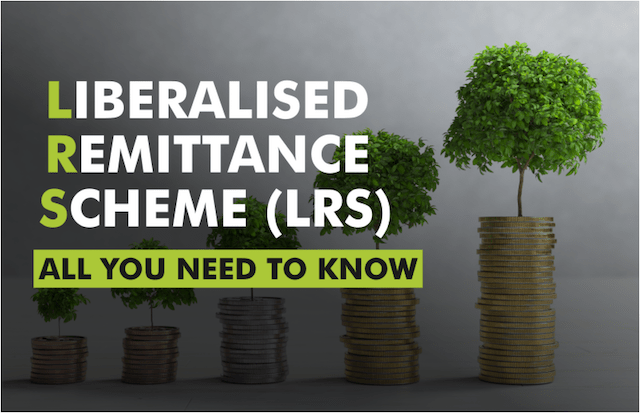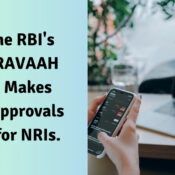Understanding the Liberalised Remittance Scheme (LRS): Your Guide to Overseas Money Transfers
What is Liberalised Remittance Scheme(LRS)?
The Liberalised Remittance Scheme (LRS) is a facility offered by the Reserve Bank of India (RBI) that allows resident Indians to remit a certain amount of money to a foreign country during the fiscal year. The funds are available for investment and expenditure. In 2004, LRS India was first launched, with a maximum limit of $25000. Over a period of time, the restriction is significantly increased.
Facts about LRS
1) NRIs are eligible for the Liberalised Remittance Scheme.
Can NRIs utilize this scheme through their Indian bank accounts?
The LRS scheme is applicable only to Indian residents. There will be no resident savings accounts for NRIs. They will only maintain NRE, NRO, or FCNR accounts. They may transfer funds from NRO, NRE, and FCNR accounts abroad, subject to the rules and documentation requirements –
- They are able to transfer up to US$ 1,000,000 from an NRO account.
- There are no limitations on transfers from an NRE or FCNR account.
The Liberalised Remittance Scheme has aided Indian citizens manage their overseas financial transactions, making their lives simpler. The funds may be utilized for medical costs, education, or other purposes. Additionally, you can invest outside of India, which is a fantastic method to diversify your portfolio.
2) What is the maximum amount that may be sent, and how often can transactions occur?
Up to $250,000 can be remitted by residents each fiscal year. As long as the sum does not go above the cap, this can be done in as many transactions as you choose. The sum is available for both capital and current account transactions. Any foreign currency that is readily convertible may be utilized in this scheme.
3) Transactions on current accounts
- Private travel to any nation (apart from Nepal and Bhutan)
- Gift/Donation Include a rupee present for a close relative who is an NRI.
- Emigration
- Overseas business journey
- Medical treatment outside India
- Maintenance of close relatives outside India
- Buying art pieces
- Leaving India to work abroad
- Abroad education
- Other current account transactions that are permitted
4) Capital account transactions
- Acquisition of real estate outside India
- Foreign investments in stocks, bonds, and mutual funds, etc.
- Establish and maintain foreign currency accounts with a bank outside India
- Under specified terms and conditions, the provision of loans, including loans in Indian Rupees, to Non-resident Indians who are close relatives.
5) Are there any limitations on how the money remitted may be used?
The Liberalized Remittance Scheme for NRI prohibits several transactions-
- Foreign exchange transactions that take place abroad
- Purchase of lottery or sweepstakes
- A gift in foreign money made by one Indian resident to another Indian resident and
- credited to the account kept overseas under LRS
- There are limitations on sending money to certain countries, and some forms of
- income cannot be sent abroad.
- The Association of Persons, Body of Persons, Company, HUF, LLP, Partnership Firm, Society, and Trust are not eligible for the LRS scheme.
What can the remitted money be used for?
The funds may be used for various purposes, including –
- Education overseas
- Gifts
- Donations
- Maintenance costs for overseas relatives
- Foreign investments in equity, debt, or real estate that adhere to prescribed regulations.
- Travel for business, conference, or training Travel and medical expenses for oneself
- Travel as a companion for a person receiving medical treatment abroad
- Emigration purposes
- Provide a loan to a close relative who is an NRI without charging interest and for at least one year.
What are the requirements for making a remittance through the LRS?
The individual’s PAN and KYC must be done. At least one year must have passed since the individual opened an account with the bank through which the remittances will be made. The bank must conduct the necessary due diligence for account establishment, account maintenance, and account operation.





